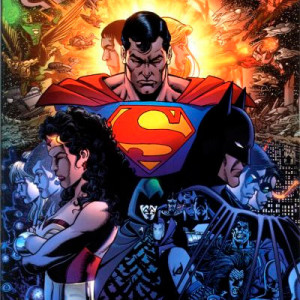I think my biggest disappointment with the New 52 is that they didn’t go far enough.
They had a chance to completely reinvent the DC Universe to an extent that we haven’t seen since the dawn of the Silver Age. Instead, we have the same basic characters: Superman is still Clark Kent, Batman is still Bruce Wayne, Wonder Woman is still Diana, Flash is still Barry Allen, Green Lantern is still Hal Jordan (and John Stewart, and Kyle Rayner, and Guy Gardner), etc.
They could have tried to recapture the sheer creativity that made the Silver Age such a success. (What if instead of a guy with a magic ring, we make him a space cop? What if instead of a small guy who’s really strong, he actually shrinks to microscopic size?) Instead, they tried to recapture the success of the post-Crisis DCU. That’s still ambitious, but it has nowhere near the same level of potential, and I think that’s thrown a wet blanket over the past two years.
But the New 52 seems to be this weird combination of top-down heavy-handed editorial mandate and throw-things-at-the-wall-and-see-what-sticks. The post-Crisis on Infinite Earths universe felt a lot more open and creative, like almost anything was possible.
Then again, I’m thinking of the first five years or so after COIE (before it accumulated enough complexity that they started doing things like Zero Hour and all the gimmicks we now think of as exemplifying the 1990s), and we’re only two years into the New 52, and I do remember there being a bit of a shakedown period — and I’ve had 20 years to forget the stuff that didn’t work in the late 1980s in favor of what did. So I could be seeing it through nostalgia-colored glasses.
Edited together from a pair of comments I originally posted on Reddit
 “Obviously, he’s a ta’veren!” Katie said. I laughed for a second, but then remembered an interview I’d read about Infinite Crisis. It actually fits.
“Obviously, he’s a ta’veren!” Katie said. I laughed for a second, but then remembered an interview I’d read about Infinite Crisis. It actually fits.![[Starfire circa 1990]](https://hyperborea.org/journal/wp-content/uploads/2005/06/starfire.gif)